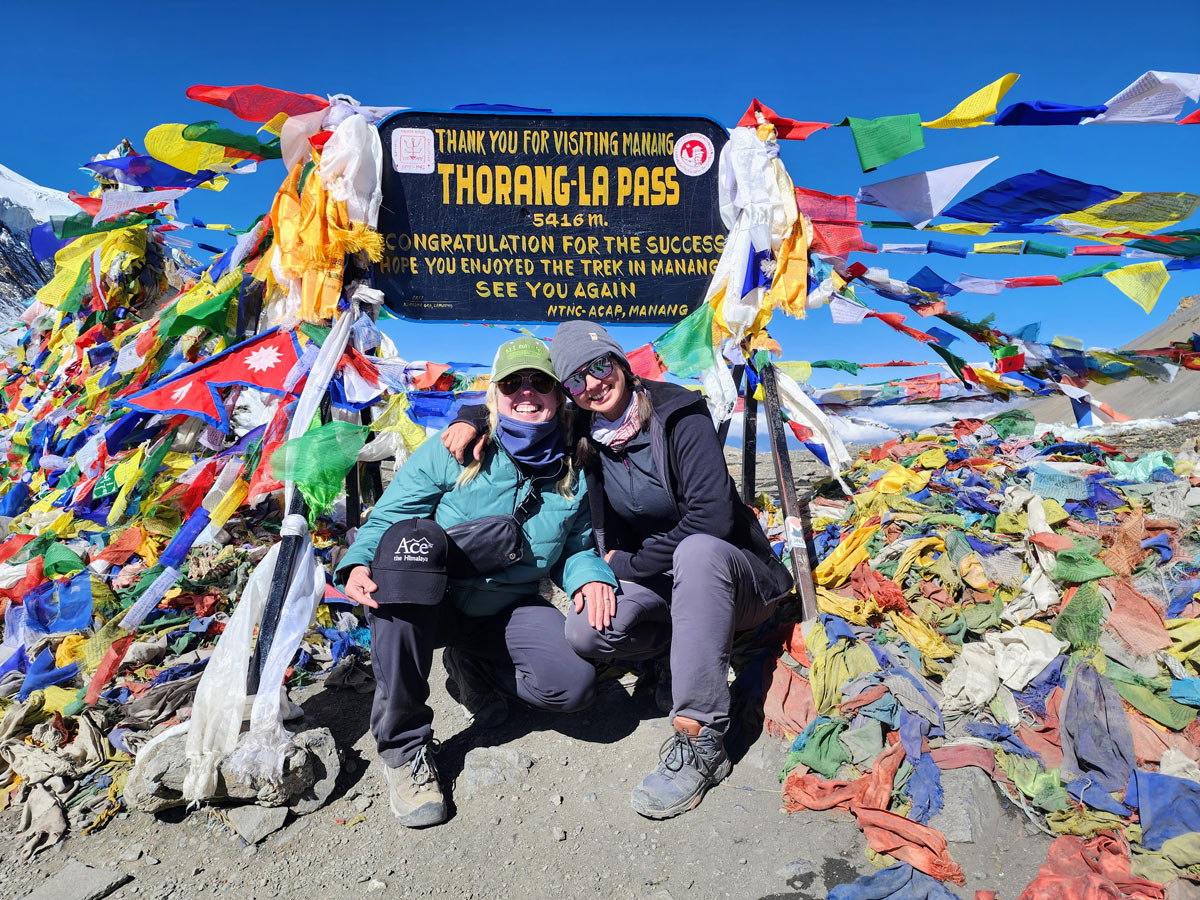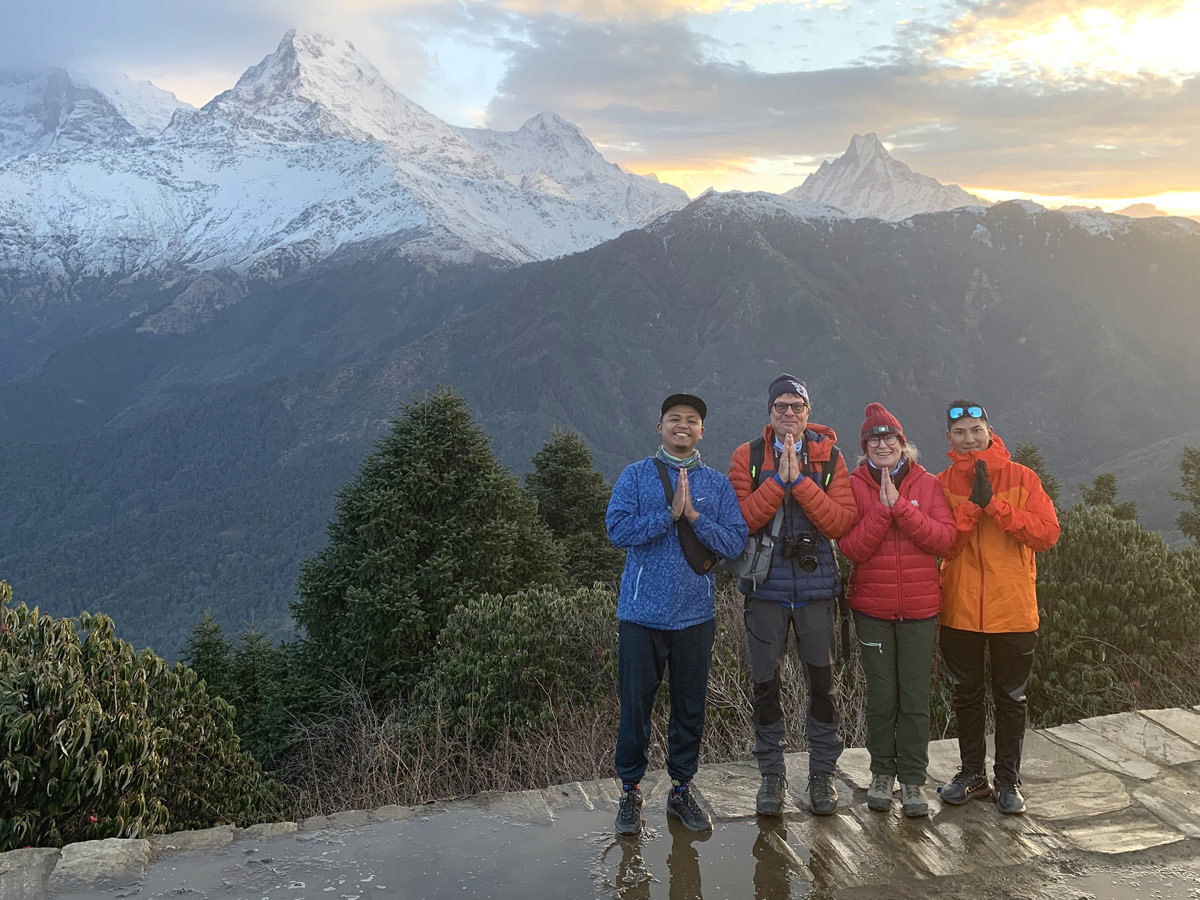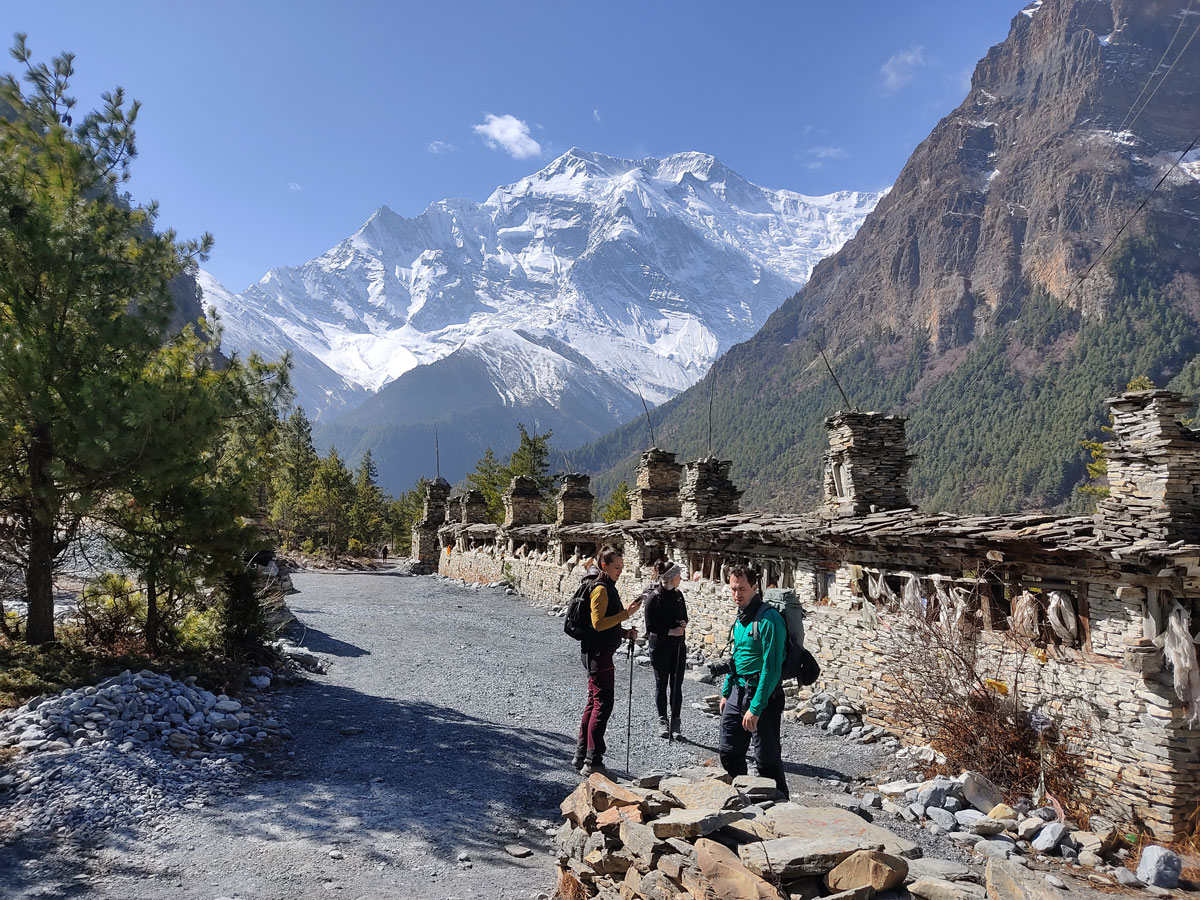Namaste!
It’s a gesture which is performed in meeting and in parting. You bring your hands together, hold your palms vertically close to your chest and with a slight bow- you say Namaste. It can be done without saying the word or with only saying Namaste and not moving your hands and head.
You will see people performing and saying Namaste, or Namaskar, when you come to Nepal, when you trek in the Himalayas or when you visit India. It’s a customary gesture in the Hindu society and to some extent in the Buddhist society.
Nowadays Namaste is a common thing in yoga classes around the world.
So, what does Namaste mean?
Namaste is originally a Sanskrit word. And it means “I bow to the divine in you”.
It’s believed that each of us carries a Divine spark within and the gesture is an acknowledgement of one soul by another.
In other words, Namaste in English means “My soul honours your soul. I honour the place in you where the entire universe resides. I honor the light, love, truth, beauty and peace within you, because it is also within in me. In sharing these things, we are united, we are the same, we are one”.
How to say Namaste?
Position Yourself: Stand up straight with your feet together, or sit comfortably with your back straight. Namaste can also be done while sitting cross-legged on the floor.
Bring Your Palms Together: Join your hands together in front of your chest. Your palms should touch, and your fingers should point upwards.
Bow Slightly: While keeping your hands at your chest, bow your head slightly towards the person you are greeting. You don’t need to bow deeply; a slight nod is enough.
Close Your Eyes: Some people close their eyes as a sign of respect while performing Namaste, but it’s not mandatory.
Say “Namaste”: While performing this gesture, you can also say “Namaste” to the person you are greeting. It’s a way of verbalizing the gesture.
Receive the Response: The person you’re greeting may respond with a Namaste as well. In such cases, you can acknowledge their Namaste with a nod or a smile.





